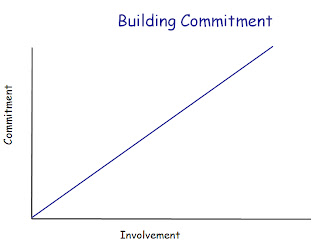Skill Cushion
Skill
Cushion:
Skills refer to the
inherent ability of individual to carry out a task/set of tasks, in keeping
with desired outcomes. Skills are the ability to apply knowledge in a
practical/work situation. As industries grow and evolve, people employed in
these industries also need to grow and evolve. This also holds true for banking
in general and domains like retail banking, corporate banking and support
functions in particular. There is a huge
skills gap that the BFSI sector faces today. For instance, the position of
relationship manager in a bank requires a certain set of key skills, as
detailed below:
Role
|
Skills
Required
|
Skills Gaps
|
Relationship
Manager
|
-Detailed
understanding of various
-Banking
product available for the Corporate and product structuring.
-Institutional
sales
-Understanding
of the bank
procedures
and documentation related
to each
product
-Day to
day interaction with the client
-General
economic awareness and awareness specific to the industry of
the
client
-Awareness
of regulatory norms
-Very
good communication skills as they are required to deal with senior
people
from the company
-Ability
to meet and chase targets
|
-Awareness
about product structuring
-General
economic awareness and
ability
to establish a dialogue with the
client
-Communication
skill
|
(Source:
NSDC Report on ‘Human Resource and Skill Requirements in the Banking, Financial
Services and Insurance Sector, 2013.)
The above table very clearly suggests that while ‘small talk skill’ and ‘communication skill’ are generally considered easy, there is a lot of scope for improvement, in this area. Further, in order to get better appraisals, better growth and better rate of success, upskilling and re-skilling maybe the key. Consider this, Lee Slater, head of talent acquisition and international talent deployment at Standard Chartered banking group, sees a similar trend: “Where banks used to hire primarily banking experience, the downturn seems to have brought a focus on transferable skills with other sector experience. We are considering candidates with skills much wider than banking experience alone. When looking at talent and suitability, this means having to be more intuitive about fit, culture, adaptability and transferable skills rather than pure experience criteria.”
‘Niche’ skills like
compliance, commodity trading, hedging, and Credit risk management etc., may
lead to progress for employees in the BFSI sector. Even lingual skills like the
knowledge of Mandarin, Japanese or German can be a part of the upskilling
agenda. Career growth in the banking domain could require continuous upgradation
of knowledge and skills in addition to good performance. This is especially true
in the Indian context, wherein banking has been changing by leaps and bounds.
In order to launch themselves to higher positions, and better projects, bankers
will need to acquire the skills cushion. This can insure against career
stagnation and help them overcome mid-career crisis. An effective way to up-skill,
re-invent and upgrade would be through certifications, short-term courses,
blended learning and training.

Comments